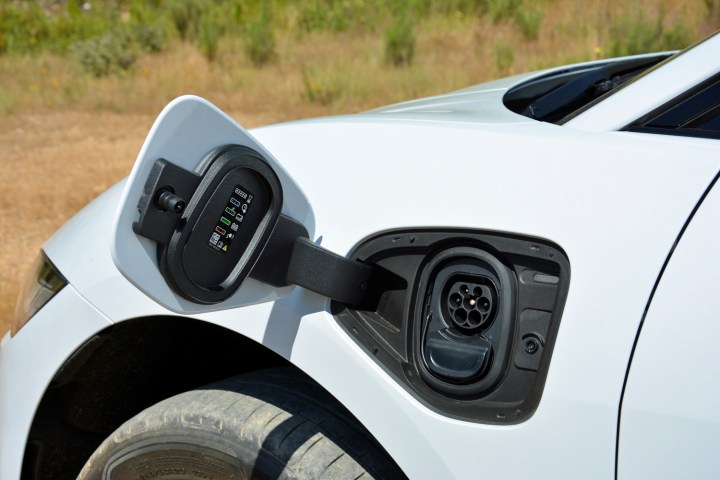
Bosch is putting cloud-based swarm intelligence in charge of monitoring how quickly electric car batteries age. This cutting-edge technology has the potential to keep electric cars on the road for longer by reducing battery cell wear, which will ultimately save motorists money. It’s currently being tested as part of a pilot program.
Think about your last best laptop or best smartphone; you likely noticed the battery lost its ability to hold a charge as it aged. Electric cars inevitably suffer from the same problem, and it’s precisely what Bosch hopes to address with its battery-in-the-cloud technology. The software continuously monitors the individual cells that make up a lithium-ion battery pack, gathers data on them, and sends the information to the cloud. The technology hoists a red flag when it detects a cell is aging too quickly.
Several factors and situations cause a battery cell to age prematurely. Fast-charging on a regular basis is a great way to kill a battery, as is charging too often. Bosch also pointed to extreme temperatures on both ends of the thermometer, and to an overly sporty driving style, as culprits. Its software keeps an eye on several parameters, including whether the battery is receiving too much electricity or getting too hot, and then configures the charging process accordingly. For example, it might decide not to zap the battery with a 100-percent charge if it’s too hot or cold outside. Swarm intelligence lets the software get wiser over time by identifying similarities between battery packs.
Bosch’s preliminary research shows this technology can extend a pack’s life by up to 20% while giving electric vehicle owners an accurate estimate of its service life.
The battery is the most expensive component of an electric car. Building it is an expensive, resource-intensive process, which explains why an electric Kia Soul, for example, costs significantly more than a gasoline-powered one. The longer the battery lasts, the longer electric car owners will be able to enjoy an acceptable amount of range without spending money on a new battery, or on a new car.
When it merges into the mainstream, and when electric cars become more common on dealer lots across America, battery-in-the-cloud could become as important as Carfax-like services to used car shoppers. Until then, DiDi, a mobility company best described as China’s home-grown Uber rival, is testing Bosch’s battery-in-the-cloud technology as part of a pilot program taking place in Xiamen. Fleet operators who own and run hundreds — and, sometimes, thousands — of electric cars stand to benefit from the software, but regular motorists will be able to take advantage of it, too.
Editors' Recommendations
- The Maserati GranCabrio Folgore is one of the best-looking EVs yet
- Tech giant reveals nice price for new EV to take on Tesla
- Tesla faces new rival as a tech giant launches its first EV
- 2024 Dodge Charger Daytona reinvents the muscle car for the EV era
- Here’s how Ford will give EV customers Tesla Supercharger access




